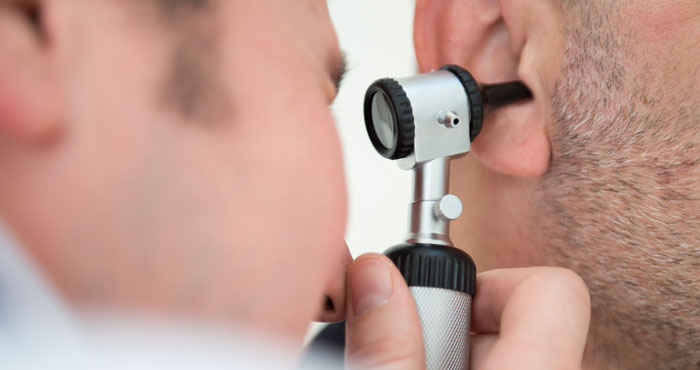Are Earbuds Bad for You?

Most people are aware that being exposed to extremely loud noise from things like explosions, power tools, or jet engines can damage your hearing. What many people don’t know is that listening to loud music for an extended period can cause hearing loss.
It’s common today for people to listen to music on their smartphones or other devices using earbuds. But is that safe or are they putting their hearing at risk? This article answers that important question.
How Loud Music Damages Hearing
Within a part of the ear called the inner ear is a structure called the cochlea. It contains tiny hairs whose movements send signals to the brain that get interpreted as sound.
Too much exposure to loud sounds damages these hairs and the cochlea’s ability to transmit sound. And, unfortunately, damaged hairs aren’t repaired or replaced by the body. Consequently, hearing loss gets progressively worse with ongoing exposure to loud sounds.
Never Miss a Beat
Get the latest health and medical news and tips delivered straight to your inbox. Sign up for our free email newsletter to stay in-the-know on the information that matters most.
Earbuds, Music, and Hearing Damage
Sound is measured in decibels (dB). For example, a normal conversation tends to produce sounds of approximately 60 dB. Our ears can handle sounds up to 70 dB without any ill effects. Exposure to sounds above 85 dB can permanently damage hearing.
Headphones typically have a maximum sound level of between 85 dB and 110 dB. That means they can produce hearing loss if they aren’t used carefully. And while many types of devices will warn you if the volume setting you’ve selected is dangerous to your hearing, it’s common for people to ignore that warning.
So, there are three good rules of thumb about listening to music with headphones. First, you should heed any warnings you get about device volume. Second, to avoid getting those warnings, you shouldn’t use devices at more than 60% of their maximum volume. And finally, you should limit your headphone use to 60 minutes at a time.
These guidelines are particularly important with earbuds. Because they focus sound directly into the ear canal, they pose a greater risk to your hearing. In addition, earbuds can force earwax up into the ear canal, creating blockages that make it harder to hear.
That, of course, leads to increasing the volume on the device. Consequently, you should try to minimize using earbuds and be particularly careful about your volume setting when you do use them.
It may be a sign that your volume is too loud if you can’t hear people sitting near you unless they shout, people near you can hear your music when you have your earbuds in, or you can hear your music clearly when you take your earbuds out and hold them at arm’s length.
Over-the-Ear Headphones: A Safer Choice
The small size of earbuds makes them convenient when you’re traveling and in certain other scenarios. But over-the-ear headphones are a better alternative when you can use them. There are a few reasons for that, including:
- They don’t funnel sound directly into the ear canal.
- They can come with noise-canceling technology that means you can hear your music more clearly without increasing the volume.
- They tend to be more comfortable, especially for longer listening sessions.
Listen to Your Music Safely
Music is an important part of life for many people, so nobody is recommending that you stop listening to your favorite tunes. The key is listening to music safely. Listening at appropriate volumes for shorter periods helps protect your sensitive inner ear and ensures that you can continue to enjoy music throughout your life.
If you’re experiencing symptoms such as sounds being muffled or distorted, buzzing or ringing in your ears after exposure to loud noise, trouble hearing others when in a crowd, or the need to turn the volume up on devices, you may be suffering from hearing damage. Audiologists at Baptist Health can assess your hearing and provide recommendations for managing hearing loss. Find a provider and make an appointment today.
Next Steps and Useful Resources:
Find a Provider Near You
Noise-Induced Hearing Loss
Tinnitus & Anxiety
Hearing Loss Prevention in the Workplace



